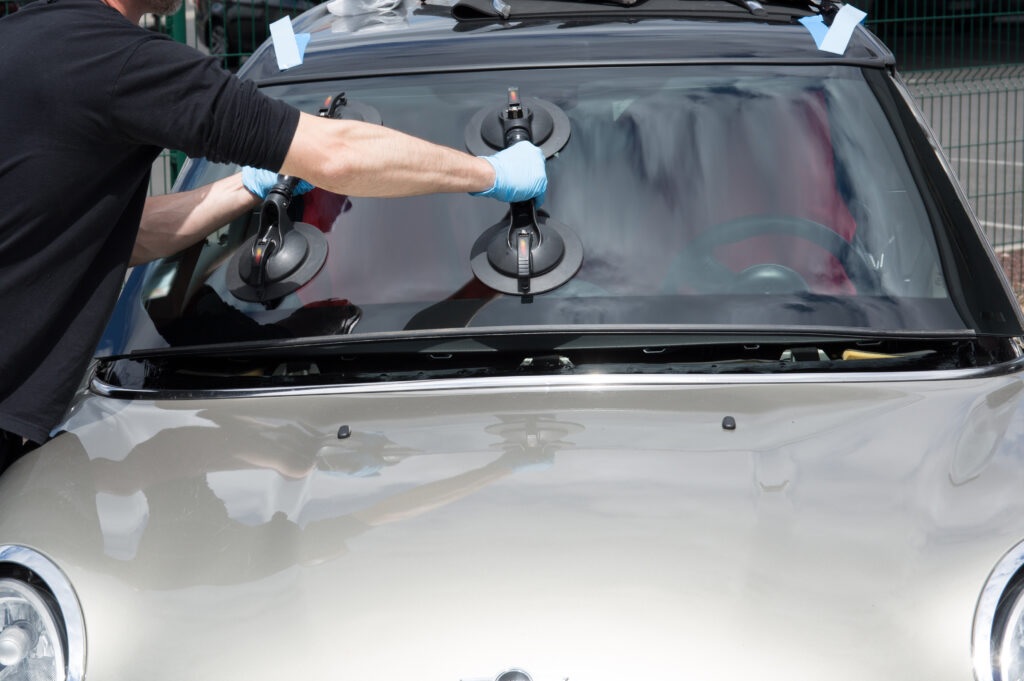Key Takeaways:
- Regular maintenance is crucial for prolonging the lifespan of your auto glass.
- Understanding common auto glass issues can help prevent costly repairs.
- Professional assistance may be necessary for specific damage and repairs.
Table of Contents:
- Introduction
- Regular Cleaning
- Avoid Harsh Weather Conditions
- Prompt Repair of Chips and Cracks
- Proper Parking Practices
- Invest in Quality Wiper Blades
- Conclusion
Introduction
Auto glass is an integral part of your vehicle’s safety features, affecting its resilience and visibility. Not only do clean and intact windows improve the overall look of your car, but they are also crucial for maintaining structural integrity during unexpected incidents such as accidents or rollover situations. Proactive care and maintenance can preemptively address minor issues, extending the life of the glass and ultimately saving you time and money. Whether through routine cleaning or avoiding certain conditions, understanding how to keep your auto glass in top condition is vital. This article shares tips for ensuring your auto glass remains clear and robust, providing crucial insights into preventive measures and when to seek professional help.
Regular Cleaning
Maintaining clean auto glass is more than just an aesthetic concern—it’s a safety imperative. Dust, grime, and oily residues can significantly impair visibility by creating streaks and spots, especially under direct sunlight or oncoming headlights. Clean your vehicle’s glass every two weeks using a microfiber cloth and a non-ammonia-based cleaner that avoids streaks and potential abrasion for optimal results. This regimen helps maintain clarity and can uncover minor imperfections, such as chips or scratches, that could lead to more severe damage if left untreated. If you’re around auto glass repair near Buffalo, NY, being vigilant about cleaning can make identifying areas needing professional repair more accessible and reliable.
Avoid Harsh Weather Conditions
Weather conditions can pose significant challenges for auto glass maintenance. Extreme cold or heat can cause the glass to expand and contract, increasing the likelihood of stress fractures. During sweltering temperatures, the sun’s UV rays can weaken glass over time, while harsh cold can lead to small cracks. To mitigate these effects, park in shaded areas or use a sunshade to minimize internal temperature spikes. In colder climates, use weather covers at night and never pour hot water onto frosted windshields; this sudden temperature change can make glass brittle and prone to shattering. Instead, opt for specialized de-icing solutions and scrapers that maintain the glass’s integrity over time.
Prompt Repair of Chips and Cracks
Proactively repairing chips and cracks is essential in preventing structural integrity from worsening. Minor chips, often caused by flying debris, can develop into extensive cracks due to vehicle vibrations or abrupt temperature changes. Inspecting your auto glass frequently and identifying any potential areas of concern early is crucial. Though DIY repair kits are available for immediate fixes, they are best utilized as a temporary solution for minuscule chips. Professional assessment ensures quality work meets safety standards for anything larger than a coin-sized chip or an expanding crack. Ignoring these imperfections could lead to more extensive and more costly replacements.
Proper Parking Practices
Where and how you park your vehicle can significantly impact the health of your auto glass. Besides weather exposure, parked vehicles are vulnerable to falling debris from trees, bird droppings, and other environmental hazards. Consider the position and environment of your parking space: avoiding spots under trees or exposed to direct weather elements can prevent physical and chemical damage. Car covers offer additional protection when garages or covered parking are unavailable, reducing sun exposure or guarding against hail and falling branches. Utilizing these practices consistently helps maintain the clarity and strength of your vehicle’s glass, promoting overall vehicle longevity.
Invest in Quality Wiper Blades
Wiper blades are a critical component of vehicle glass maintenance, often overlooked until they severely deteriorate. Once they degrade, wipers can cause streaks and smears on the windshield, compromising visibility and potentially leading to minor scratches over repeated use. High-quality wiper blades also ensure clear visibility in inclement weather by removing rainwater, snow, and debris. Replacing wiper blades every six to twelve months or at the first sign of wear, such as skipping across the glass or producing squeaky sounds, is recommended. Regular inspections of the wiper blades and maintaining a clean wiper mechanism are vital to prolonging their effectiveness. Proper care for your wipers enhances safety and conserves the quality of the windshield for a longer time.
Conclusion
Auto glass care combines preventive measures and timely interventions that keep your vehicle safe and road-ready. By committing to regular cleaning, avoiding exposure to adverse conditions, addressing chips and cracks promptly, practicing strategic parking, and investing in quality wiper blades, you can significantly enhance the lifespan and effectiveness of your vehicle’s glass. As auto glass is integral to your vehicle’s strength and driving experience, maintaining its quality should always be prioritized. The mentioned practices can prevent costly repairs and ensure that your view of the road remains clear. Should you find substantial issues that exceed your capability, do not hesitate to consult a professional for peace of mind and guaranteed satisfaction.
